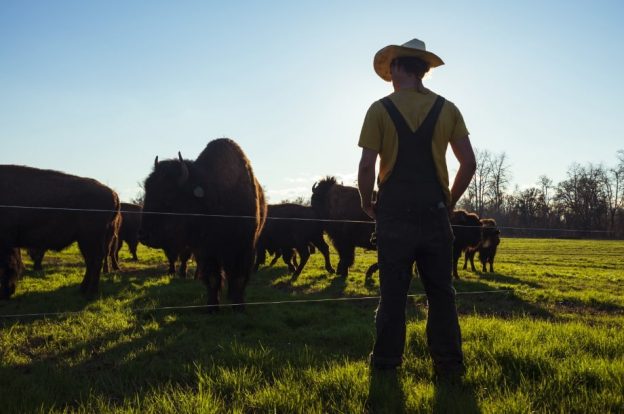No matter how big your flock or herd is, disease can be spread when animals come into contact with each other. You need to keep that in mind if you want to prioritise animal health and wellbeing. It is also necessary to protect people the animals may encounter.
Direct contact can present risks to both humans and livestock. Common diseases spread between animals include mastitis and infectious bovine rhinotracheitis (IBR). Another would be bovine viral diarrhoea (BVD). Other major diseases include African swine fever, avian influenza, and foot and mouth disease.
How does it happen?
For diseases to spread, there needs to be a disease agent within the environment on an infected animal. Animals become exposed when the agent meets mucous membranes or open wounds. Or, it can spread through biting, rubbing, and nose-to-nose contact. Exposure can happen between animals or different species and even humans. All this depends on the disease.
Something else that direct contact includes is disease that’s spread during reproduction. Diseases can go from mother to offspring during pregnancy, birth, and nursing. Moreover, it is possible for them to spread to humans that aid with animal births. Contact with tissues like brucellosis contaminated placenta or working with animals that have Q fever can do it.
Safeguarding herds
There are steps you can take to safeguard your herd from diseases spread through direct contact. This will improve animal health.
One thing would be quarantining returning or new animals before letting them encounter others. You can introduce them when you are happy they aren’t carrying any diseases.
When you have sick animals, isolate them from the healthy ones to stop contact and exposure. Restrict contact between animals of differing species and ages too. Younger animals are more likely to catch diseases than older ones.
Always have sufficient space for animals to find shelter, drink water, and eat. Giving them room can minimise direct contact between healthy and diseased animals. With enough space, you also stop overcrowding in your pens and pastures.
It is also vital to clean pens/pastures regularly to stop waste build-up. This can directly reduce the risk of a number of illnesses.
Another thing you can do to is stop fence line contact between your herd and neighbouring livestock. Place measures on your property to prevent it and you can improve animal health among both sets of animals.
Stopping disease through reproduction
You can make moves to halt disease transmission through reproduction as well. With animal births, see that they happen on dry, clean bedding or pasture. Dry bedding needs removing and you need to add clean bedding between animals. During birth, it is possible for disease-causing organisms to shed into the environment. Deeply bed birthing pens with absorbent substances to drain fluids away from the newborn and restrict contact.
When you can, cleanse dirty udders prior to birth. Always offer a dry space for animals to lie down so teats or udders don’t get covered with filth. This will lower the danger of mastitis and disease exposure for the newborn. You should also know the health of your animals before insemination or birth to protect any offspring.
Protecting people
Because direct contact can lead to diseases spreading to humans, you need to protect yourself and others. Diseases that can spread include Q fever, ringworm, leptospirosis, and rabies.
The key to protection from diseases is to wash hands after animal contact. Wear protective gear as well when touching body fluids or wounds. This includes things like palpation sleeves and gloves. After removing any PPE, wash your hands to be sure.
Something else that is important is to lower the time people spend with sick animals. Also, have fewer people encounter them.
Let us help you with animal health
At JS Hubbuck Ltd, we provide different merchandise to help clients in any way we can. This includes fertiliser for raising crops, bedding and feed for livestock, trailers, and much more.
So, if you’d like to find out more about animal health products or anything else, feel free to talk to us.

